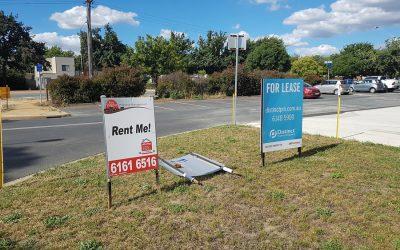
Credit markets tightened up as COVID-19 seized the country (and the world). For real estate investors who rely on investment property loans to finance their property portfolio, that’s a huge problem.
So where can real estate investors turn for funds, in the grip of the coronavirus pandemic?
Deni and Brian chat about both financing strategies that real estate investors can use and specific lenders currently issuing investment property loans, to keep the money flowing and your portfolio growing!
Video Broadcast Version
Audio Podcast Version
Also available on iTunes, Stitcher, and wherever else you listen 🙂

Brian Davis: This is Brian Davis and Deni Supplee here from Spark rental.
Deni Supplee: Hi everyone, how are you doing?
Brian Davis: Another day in paradise, right? Another day in lockdown.
D: In my county we’re still in red. It sounds terrible saying that. A bunch of other countys moved to yellow. We are one of the few in Pennsylvania that are still red.
Brian Davis: That’s the state of emergency code.
Deni Supplee: I wish I was yellow and green.
Brian Davis: My dad says that everyday is like hardground day.
Deni Supplee: That’s how my husband says it. he is like: it’s the same
Brian Davis: It is. So, anyway, last week we talked about pandemic real estate investing. And we’ve been over a few signs about when things will be a little saver to buy real state again, if you’ve been standing on the sidelines of real estate investing during the pandemic. This week we are talking about creative financing ideas for investment properties during the pandemic. And as we start moving out of the pandemic lockdown, ways to finance investment properties. Because one of the big challenges right now is getting loans, is getting financing. All of the portfolio landers that we work with issue landlord loans have suspended loans entirely for landlords.
Deni Supplee: And there’s people out there that want loans, it’s so frustrating.
Brian Davis: A lot of these landers are still assuring the short term purchase rehab loans. Like car money loans and that sort of thing Buy it, renovate it. but these are short term loans, they have to be paid back, usually within a year, sometimes less than that. We don’t know any ´portfolio lenders that are still lending those long term mortgages for landlords right now. So today we’re talking about how to get creative with it. Since you can’t go to the more conventional root.
Deni Supplee:: That’s thinking outside the box here.
Brian Davis: Sometimes this is what you got to do as a real estate investor, right?
Deni Supplee: In any business.
Brian Davis: So, as you guys join us let us know where you are running in from and fire your question at us. This is interactive. Not just Deni and I talking to you. So fire your questions at us as we go and let us know where you’re tuning in from. We like to know that stuff too. It’s a global business we have here, we like to be reminded that sometimes.
Deni Supplee: Brian, let’s get started to talk in here. Talk about home equity loans.
Brian Davis: So, that’s the first option here for getting creative with how to get funding for your next investment property while it’s harder to get financing right now. Tap into your existing equity, weather is in your primary residence, or your investment properties. You can get either a home equity loan, which is a mortgage, usually a second mortgage. It could be a first mortgage, if you don’t have any mortgages on your properties already, so if you own the property free and clear,would be a first thing position. Could be a home equity loan of course, or could be a relock, a home equity line of credit, which instead of being a fixed term loan, like a mortgage, is a rotating line of credit, so you can drawn on that line of credit when you need the money and then pay it back on your own schedule, much like a credit card, but secured against the property. Again you can get home equity loans, or relocks secured against either your primary residence or vacation home or rental property.
Deni Supplee: It’s a bit more difficult on a rental property, wouldn’t you say?
Brian Davis: It is, the long term, a little bit strictor and they tend to lend a lower LTV or a loan devalue ratio. With the primary residence you can usually get between 80% and 90% sometimes even more than that with your primary residence with a home equity loan, anyway. but for investment properties or second homes, like vacation homes, you are looking at a lower LTV, so you might be looking at 75%, 80% maybe 85% if you’re lucky. (Of the property value that you can tap into).
Deni Supplee: We have Sam here from North Carolina and I’m not sure if that’s a he or a she, so pardon me.
Brian Davis: That’s a she based on the picture.
Deni Supplee: It is. See I can’t see, my daughter always yells at me. Anyway, they wanna know if my debt to income ratio is about 50% due to earning properties and the income other property has not been filed yet, how can I purchase more properties with tapped out DTI ratio?
Brian Davis: I’m not sure if your rental properties are full or occupied. If they are occupied, the landers will, you can provide them documentation of the lease agreement of your bank statement showing that the rents have been paid , to prove that you do have that income and o adjust that debt to income ratio. So, that would be mine main comment, make sure they’re full, obviously. Of course, that’s your cash flow in general, and then ask the lender what kind of documentation they need to verify that you do have that rental income coming up.
Deni Supplee: What are your thoughts on cash out refinances?
Brian Davis: I’m not big on cash out refis. Refinancing in general, lenders love it. And that should be your first red flag. Make great sense for them, because they can extend you debt horizon far into the future, they get to change you thousand of dollars of clothes and costs and they get to restart the amortization schedule. So, this is something that we don’t talk about that often. But you should check out a mortgage or any loan, any fixed loan the payments are in are in accordance to an amortization schedule 06:45 over the term of your loan. And at the very beginning of your loan, the overwhelming majority of that monthly payment goes straight to interest and only a little bit goes to paying your principal balance and over the course of your long term, that gradually shifts, but it shifts as an exponential curve, so for most of your long term, the majority of your monthly payment is going towards interest and then is only toward the very end of your loan that most of each monthly payments starts actually paying down you principal balance. So, lenders don’t want you to get to that point in the loan. They want to refinance you before you actually get to the point that most of your payment is going towards principle. So, I know we are taking a little bit of a tagine here about refinancing. I would actually urge for people to do a second mortgage, or better yet a HELOC if they wanna use those funds for real estate investing. Its case by case, it’s easy for me to sit here and say “you should do this, you should do that’.’
Deni Supplee: Well, my thoughts were: a lot is so tough and tightened up right now that maybe that is an option, if that is not too many others.
Brian Davis: It is an option, and there are times when it makes sense. So, in general, I would urge people to be really caution about refinancing property, whether is their home or a primary residence, or a investment property or second home. But it is a viable tool and it’s something you can do. So, that’s within your financing tool box in the real estate investing world.
Deni Supplee: So, let’s move on to business credit lines which is kind of creative at least.
Brian Davis: It’s something Deni and I had talked about quite a bit over the last couple of months. It’s a relatively new form of credit (it’s not THAT new, but the service that we’re pointing people to, it’s a relatively new concept. It’s like a credit line concierge service that will help you get a whole bunch of rotating business credit line and credit card. and the important thing here is that they are unsecured credit lines and credit cards. They are not attached to your property, which has a lot of implications for you as a real estate investor. First of all, it means that if you default, you’re not going to lose your home or your property. But, just as importantly, you don’t have to go through all of the expense of ordering title work and having a settlement o secure it against that property, so they are much faster and cheaper to get. Deni can share a couple of links here, where you can go o those home equity loans and relocks (that we’ve talked about a minute ago) or to get a series of credit lines and unsecured business credit cards to finance your next deals. So, these are great, because real estate investors are self employed business people even though they don’t often think of themselves that way, they are business people and they qualify for business lines of credit and business credit cards and they can use these lines of credit and credit cards to invest in real state whether as a down payment or to pay for a property out, right? If it is a least expensive property or they can use those credit lines and credit cards to cover repairs, the cost of renovations or repairs or these properties, so the average real estate investor usually qualify a combined total of between a $150,000-$250,000. That’s not one single credit line, or one single credit card. that’s a whole bunch of credit lines and cards that they qualify for in beats and pieces. You know, $20,000 here, $30,000 there, but they all add together to amount of $150,000-$200,000 (through this one program, anyway, that we’ve been referring people to). But it could be as low as $50,000 combined or it could be as high as $250,000 combined. it really comes down to your personal credit score, and to your income as well, both personally and as a real estate investor or business person.
Deni Supplee: Seller financing?
Brian Davis: Seller financing, oldie but goodie, right? And these are more useful than ever right now.
Deni Supplee: This times of financing always comes around the bend. There is stuff like this going on.
Brian Davis: When people can’t get conventional mortgages or more traditional portfolio loans from landlords, when that stuff is not really available, because we are in a bit of a credit crunch right now then people turn to asking sellers to finance properties for them There are pros and cons put one of the big pros is that you can negotiate your own terms with the sellers. Those terms include interest rate, of course. Maybe you offer to paythem couple points at settlement and of course, the term within you has to pay back that loan, so typically these are structured as balloon mortgages, so the monthly payments are calculated as if it were a 15 or 30 year mortgage, like a normal one. But it has a balloon, which is usually between 3 and 5 years, which means that you have to pay them back in full before the balloon period ends. You are making payments as if….
Deni Supplee: if you are the person that’s offering that seller’s financing, you have to be really careful because you’re, essentially a mortgagor. So if somebody defaults…
Brian Davis: So, this is what you negotiate between the buyer and the sellers. So with the balloon you have to pay it back in full within that period. Usually by selling the property or refinancing it. So, it’s amortized like a 30-year mortgage, your paying the monthly payment like it’s a 30 years mortgage. But you have to, either refinance or sell the property to pay them off in full within, usually in three years, for seller’s financing (it’s the balloon period). But it could be five years, or two years, whatever you negotiate with the seller.
Deni Supplee: What I’m saying is: If the buyer defaults.. If you’re not the buyer, if you’re providing the seller financing, just be careful. Because you have to go through foreclosure procedures, if it’s defaulted. And some states, like Texas (I only know this cause I’m helping somebody with one) is tough because they have some weird rules around it.
Brian Davis: So, if you’re the buyer and you’re looking for creative financing, you can propose seller financing to the seller, see if they’re open to it. If you are a seller and looking to sell right now and you’re having a hard time selling the property, then you can consider selling financing, but , like Deni Said: the closure process is expensive and time consuming for the lander. So, keep that in mind! And the down side of this as a buyer is that a lot of sellers just won’t be open to it. But, if you’re having a hard enough time selling the property then they may be open to it.
Deni Supplee: I think in certain areas right now, we’re going to see a lot of these going on.
Brian Davis: Absolutely.
Deni Supplee: So , what are some other ways? Sell your children?
Brian Davis: Yeah, sell your children for slavery.
Deni Supplee: we are just kidding here.
Brian Davis: So, other creative ways to refinance real estate investment properties right now is: You can access personal loans, potentially. they’re not going to be enough to cover the entire purchase price for the property, most likely. But you can access some money that way, especially if you have very strong personal credit. You can tap into, or you can use a self directed IRA, so you have to set that up, by the way. But it’s easier to set up than you think. there are a lot of companies online self directed IRA custodians that can help you with that process, creating a small fee and then they will do all the heavy lifting on the regulatory side for you, then you can use that IRA to buy properties or real estate. And you can also, rather than just investing in property directly, as your IRA or retirement income investment. You can also borrow money against your retirement account, at least your employer’s sponsor account such as your 401(k). You can borrow money with very low interest rates, because you’re basically borrowing money from yourself and there is no risk of default, really. But it is a loan and you still have to pay interest, even though you’re borrowing the money from your own account.
Deni Supplee: And would you say that when you’re applying for a mortgage and they see that you’re taking some of the down payment from a loan from your 401(k), does that go against you?
Brian Davis: You mean ‘borrowing part of your down payment’? Lenders don’t like that. If you’re getting a conventional loan, a conventional mortgage, they won’t allow it at. If you are going to a portfolio lender, they usually do allow it. because they are lending more against the collateral of the property, rather than focusing on you as the borrower, but they still don’t really like it. But then again, portfolio lenders aren’t lending at all right now.
Deni Supplee: that is true. So it doesn’t matter.
Brian Davis: But these are just a few other ideas to tap into their existing saving or borrow money to have more cash on hand to buy real estate right now.
Deni Supplee: And you can always ask friends and family.
Brian Davis: That is true. That’s a better idea if you’re an experienced real estate investor and you have a proven track record of success. If you are new at real estate investing, don’t jeopardize your personal relationship by asking for money. It’s a privilege, not a right, to raise money from your friends and family, and you really have to earn that privilege by demonstrating a track record of success. private notes are a great way of..
Deni Supplee: It’s like running to family
Brian Davis: Yeah, it’s the same kind of stuff. because you are putting your personal relations on the line with that. I’ve lent money for some real estate investors that I know before, on private notes. And it’s worked up great, but they have a proven track record of success so I’m lending them money as an investment, not as charity. It’s an investment for me, and they are not abusing that trust. They pay me my interest payments on time.
Deni Supplee: I put the link in to that guest article.
Brian Davis: Yeah, it’s a guest article from a friend of ours who has written Best Company, who put that article together for us.
Deni Supplee: We didn’t ignore you, Tara here in Philadelphia!
Brian Davis: Deni, any other comments that you wanna put out there before we wrap up for today? Creative Financing During the Pandemic?
Deni Supplee: Protect yourself, when you’re doing the same of these creative financing techniques and make sure they’re within. That’s my thing, always . You don’t wanna go down that road and then find out that wasn’t proper right and end up even in deeper hot water.
Brian Davis: We mentioned some of those techniques to either borrow from your retirement account or invest in real estate as part of your retirement account. just be really careful with that! Because this is your future. You are very literally mortgaging your future when you do that. Doesn’t mean you shouldn’t do it ever or it doesn’t mean it doesn’t make sense sometimes. Just be cautious because your retirement account… you’re going to need that one day.
Deni Supplee: Make sure the numbers work too!
Brian Davis: Use our Cash Flow Calculator before mortgaging your future. Well, hope your staying safe and sane out there and that goes doubly as the economy starts to reopen. We’re obviously all excited about. Just be careful and make sure you keep it tight for yourself.
Deni Supplee: And send us your ideas! Whatever questions you have or if you want to subject us to go over just send it our way. Through social media or at SparkRental.com
Brian Davis: Let us know what you wanna hear about next week. And we’ll see you next Tuesday!
Deni Supplee: Have a good day!























